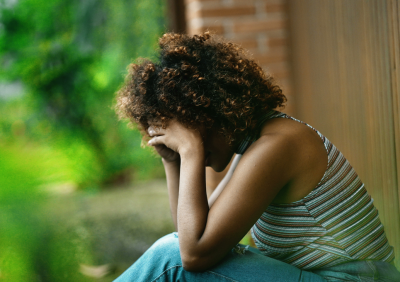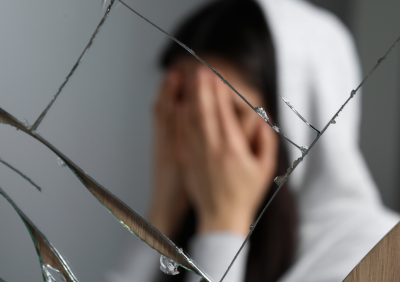
Hello everyone. This is Nehawa. So, I was diagnosed with fibroids in June 2019, and I was immediately booked for treatment. I was just shy of my 33rd birthday. I suddenly experienced a lot of symptoms, some more prominent than others. To name a few: heavy menstrual bleeding, irregular cycles, and menstrual periods lasting more than a week.
Initial Symptoms and Impact
Plus, sometimes my menses would occur three times in one cycle. I also experienced frequent urination and difficulty urinating, which led to recurring UTIs over time. I also dealt with constipation, bloating (often looking pregnant), pelvic pain, and pain around my waist. Over time, this pain even extended to my feet, causing swollen feet.
Furthermore, hormonal changes, such as hot flashes, were occurring frequently. In essence, fibroids significantly impacted my family, personal, and even work life. Personally, it deeply affected my psyche. It was quite traumatizing and negatively impacted my self-image. I used to be very slim my entire life. I never had weight issues until I experienced a miscarriage, after which the fibroids seemed to worsen. That’s when it became evident that something was seriously wrong.
I disliked how I looked in the mirror. I constantly felt bloated and pregnant. Moreover, during my menstrual cycles, I was extremely self-conscious. Consequently, I often limited myself to wearing black clothing during my periods. This preference for black clothing even extended beyond my menstrual cycles, resulting in an almost entirely black wardrobe.
Personally, as a married woman, I began to worry. After the miscarriage and the onset of fibroids, I wondered if I could ever become pregnant. My husband and I tried for some time without success, which was incredibly frustrating. This constant stress weighed heavily on me.
From a family perspective, witnessing my loved ones’ concern as I suffered was incredibly difficult. They felt helpless seeing me in so much pain, and I felt terrible, especially when I visited my mother. She was distraught by my appearance and would often sneak glances at me when she thought I wasn’t looking. She watched helplessly as I struggled with the pain, sometimes even waddling. This experience, even post-surgery, was incredibly traumatic.
There are also significant challenges associated with post-surgery, including depression, recovery, and ongoing pain.
Yes, fibroids have profoundly impacted my life in numerous ways. However, I am grateful for where I am today. I had multiple fibroids, and the concern was that the larger ones were pressing against my uterus. My doctor emphasized the possibility of having to remove my uterus during the extraction procedure.
However, he did everything possible to preserve my uterus, which I am incredibly grateful for. I am fortunate to have had a knowledgeable and experienced doctor who provided excellent advice on my treatment options.
Given the size and number of fibroids, minimally invasive procedures were not feasible. I required open surgery. Had my condition been less severe, I might have explored options like Uterine Fibroid Embolization (UFE), laser laparoscopy, or minimally invasive myomectomy.
I am truly grateful for my doctor’s expertise and sensitivity. He did everything within his power to preserve my uterus. I am glad you asked me this question because it provides me with an opportunity to share my story.
I will now walk you through my journey, from my initial diagnosis to my recovery. Prior to my diagnosis, I had limited knowledge about fibroids. I knew they were tumors that grow in the uterus, but I was unaware of their causes, triggers, or the demographics most affected.
Furthermore, growing up in Cameroon, there was a significant stigma attached to this condition. Women’s health was often linked to infertility, and there was a lot of negativity surrounding such conditions.
Back home, we lacked adequate resources, and many doctors were not adequately sensitized to young women’s health issues. As a young girl, I experienced irregular cycles and heavy bleeding. My mother took me to a gynecologist, who simply dismissed it as normal for women to have irregular cycles.
I was never educated about the fact that irregular cycles and constant bleeding are not always normal. This lack of awareness was common in my community.
Therefore, I am now dedicated to raising awareness about fibroids at the grassroots level. I want to educate people about this condition and its potential impact.
Diagnosis and Treatment Plan
I cannot definitively say whether I had fibroids before my pregnancy, but I can confirm that my miscarriage was a significant trigger. As I mentioned earlier, I was always very slim. Although I occasionally experienced bloating, I was generally petite. Even during my pregnancy, I remained relatively slim.
However, after my miscarriage, hormonal imbalances and other changes occurred rapidly. I started gaining weight around the waist and experienced significant weight gain. While I was aware of these changes, I didn’t fully understand their cause.
I consulted a few gynecologists, but they attributed the changes to hormonal imbalances following the miscarriage, assuring me that things would eventually return to normal.
However, between 2017 and 2018, the physical changes became increasingly pronounced. It became evident that something more serious was happening. Internally, I experienced significant changes as well. I had frequent hot flashes, excruciating pain, and immense pressure in my pelvic area.
During my periods, I often experienced symptoms mimicking pregnancy, such as constant constipation and bloating. I tried various weight loss diets and remedies, but nothing seemed to work.
I consulted a doctor who diagnosed me with H. pylori and treated me for nine months. However, my condition continued to worsen. I gained more weight, the pain intensified, and the pressure increased.
At this point, my feet were swollen, and my complexion darkened significantly. I even developed a pregnancy glow, similar to that experienced by pregnant women. I also began experiencing frequent UTIs due to constant urination and difficulty urinating.
This is when the previously minimal symptoms began to manifest with full force. I realized that my issues couldn’t be attributed solely to H. pylori.
My cousin, a doctor of pharmacy, also expressed doubts about the H. pylori diagnosis. I began researching my symptoms online, and that’s when I started considering the possibility of fibroids. I joined various women’s health and fertility forums and gradually began to suspect fibroids, particularly due to the anemia and other symptoms I was experiencing.
In 2019, I visited my parents, as my father was seriously ill. My parents immediately noticed that something was gravely wrong with me. Their concern prompted me to seek a second and third opinion.
Upon returning to Dubai, I immediately scheduled an appointment with a specialist. This doctor, a highly knowledgeable senior gentleman from Lebanon, conducted a thorough examination.
He diagnosed me with fibroids based on his initial assessment but recommended an ultrasound to confirm the diagnosis and determine the size and location of the fibroids.
The ultrasound revealed multiple fibroids. He then recommended an MRI scan for a more detailed assessment.
The MRI results confirmed the presence of over 30 fibroids, many of which were pressing against my uterus. He explained that while he would do everything possible to preserve my uterus, an emergency hysterectomy might be necessary.
He thoroughly explained the situation to me and prepared me for the upcoming procedures. I underwent numerous tests, including blood tests, physical assessments, and consultations with other specialists.
Within two weeks, I underwent surgery. My doctor provided me with a dietician and recommended a detox diet to prepare my body for the surgery.
I also found significant support through online forums, particularly a community called “Women Who Bleed.” This platform provided invaluable support and helped build my confidence for the upcoming surgery.
My advice to other women dealing with fibroids is as follows:
- You are not alone. There is a vast community of women who have experienced similar challenges.
- Early detection is crucial. Early diagnosis and a strong medical team can significantly improve your outcomes.
- Do not be ashamed of your condition. This is not your fault. You deserve a good quality of life.
- Prioritize your health.
- Seek multiple opinions. If you are not comfortable with a particular recommendation, seek alternative perspectives.
- You have the right to choose your treatment path.
- Explore all available options. There are numerous treatment options available, and you should choose the one that best suits your individual needs.
- Stay informed. Research your condition thoroughly but be mindful of the source of your information.
- Surround yourself with a supportive network.
- Be patient and kind to yourself.
Remember, this is a journey, and it’s important to take things one step at a time.
My friends and I have created a safe space for women to learn about fibroids, their management options, and other relevant information.
We also provide access to free ultrasound scans to assist women in their diagnosis and treatment journeys.
Our mission is to empower women by providing them with the knowledge and support they need to navigate this challenging condition.
This is an ongoing fight, and we are committed to raising awareness and supporting women affected by fibroids.
Are you at risk?
Get the latest information about fibroid research, symptoms and treatment.







